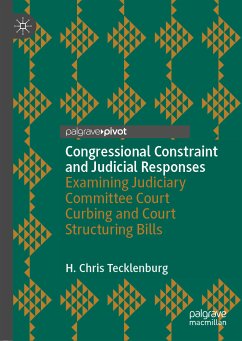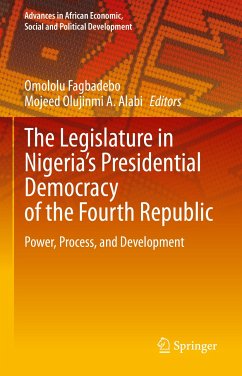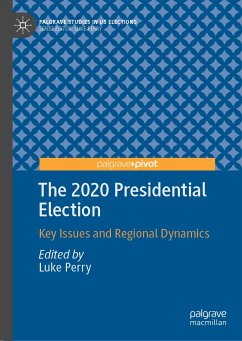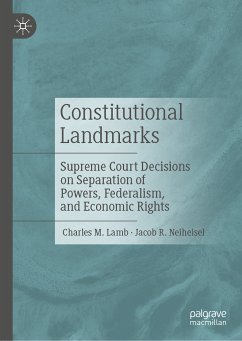
The Two Faces of Judicial Power (eBook, PDF)
Dynamics of Judicial-Political Bargaining
Versandkostenfrei!
Sofort per Download lieferbar
68,95 €
inkl. MwSt.
Weitere Ausgaben:

PAYBACK Punkte
34 °P sammeln!
This book shows that constitutional courts exercise direct and indirect power on political branches through decision-making. The first face of judicial power is characterized by courts directing political actors to implement judicial decisions in specific ways. The second face leads political actors to anticipate judicial review and draft policies accordingly. The judicial-political interaction originating from both faces is herein formally modeled. A cross-European comparison of pre-conditions of judicial power shows that the German Federal Constitutional Court is a well-suited representative...
This book shows that constitutional courts exercise direct and indirect power on political branches through decision-making. The first face of judicial power is characterized by courts directing political actors to implement judicial decisions in specific ways. The second face leads political actors to anticipate judicial review and draft policies accordingly. The judicial-political interaction originating from both faces is herein formally modeled. A cross-European comparison of pre-conditions of judicial power shows that the German Federal Constitutional Court is a well-suited representative case for a quantitative assessment of judicial power. Multinomial logistic regressions show that the court uses directives when evasion of decisions is costly while accounting for the government's ability to implement decisions. Causal analyses of the second face of judicial power show that bills exposed to legal signals are drafted accounting for the court. These findings re-shape our understanding of judicialization and shed light on a silent form of judicialization.
Dieser Download kann aus rechtlichen Gründen nur mit Rechnungsadresse in A, B, BG, CY, CZ, D, DK, EW, E, FIN, F, GR, HR, H, IRL, I, LT, L, LR, M, NL, PL, P, R, S, SLO, SK ausgeliefert werden.












